How to Use Nutrition to Cure Lung Disease
 Nutritional deficiencies can play a role in any number of diseases and disorders, including problems with the lungs and respiratory system. In some cases, a nutritional deficiency may even be the primary cause of the illness in the first place, while in other situations a deficiency can make recovery more difficult or exacerbate the symptoms of an existing health problem. There are a few specific nutrients to keep in mind when it comes to treating lung and respiratory system issues, which I’ll discuss below.
Nutritional deficiencies can play a role in any number of diseases and disorders, including problems with the lungs and respiratory system. In some cases, a nutritional deficiency may even be the primary cause of the illness in the first place, while in other situations a deficiency can make recovery more difficult or exacerbate the symptoms of an existing health problem. There are a few specific nutrients to keep in mind when it comes to treating lung and respiratory system issues, which I’ll discuss below.
Vitamin A Deficiency
If you plan to take supplements of vitamin A, opt for beta-carotene instead of retinol. Retinol is the “pre-formed” version of vitamin A, which is helpful in some cases, but it’s much easier to accidentally take too much retinol than it is to take beta-carotene. If you take more beta-carotene than your body needs, it simply gets excreted in your urine.Note, however, that the vast majority of studies that I discuss in this post are generally administered as retinoic acid (RA) therapeutically unless stated otherwise. Researchers have specifically had success reversing damage to the extracellular matrix and lung problems related specifically to issues with the extracellular matrix when using retinoic acid therapeutically. It’s possible that beta-carotene would, however, work similarly in some cases.
Use care when taking retinoic acid since it’s an active form of vitamin A, like retinol, and it is therefore possible to take too much if you’re not careful. It’s possible to take lower doses of an active form like retinoic acid over the shorter term in addition to somewhat higher doses of beta-carotene, though, especially if you note an improvement in your symptoms. However, make sure that the form of vitamin A or beta-carotene that you get is NATURAL and not synthetic. In terms of beta-carotene, the natural form is known as all-trans, 9-cis and 13-cis β-carotene while the synthetic form is known as all-trans-β-carotene. Vitamin A deficiency may lead to the following lung problems (among others that may not be listed here):
- Emphysema
- Childhood asthma
- Chronic obstructive pulmonary disease (COPD)
- Pulmonary fibrosis
- Lung cancer
- Respiratory infections
Vitamin A deficiency, particularly in combination with protein malnutrition, has been noted as being one of the world’s most common deficiencies. Restoring proper vitamin A levels has been noted for its anti-infective qualities and immune-modulating properties and is regularly used therapeutically in developing countries. Deficiency of vitamin A can cause these problems in relation to lung problems specifically:
-
- A decrease in mucus production - Mucus is present throughout the body and plays an important role in the health of the respiratory system. Without sufficient mucus production, a person is more susceptible to infection and will not be able to overcome an infection as easily.
-
- Impaired function of macrophages, neutrophils, and natural killer cells and impaired development of T-cells - These are some of the body’s primary defenses against infection. When the function of these cells is damaged, a person is more at risk of getting an infection. Impaired cell function is also associated with symptoms of autoimmunity in certain cases. If your doctor has diagnosed you with an autoimmune disease, you may want to consider taking beta-carotene supplements because sometimes, autoimmune symptoms are actually misdiagnosed nutritional deficiencies.
-
- Decreased defensive ability of glandular cells in the respiratory tract
-
- Development of squamous metaplasia of the epithelium
- Imbalanced antioxidants and ROS (reactive oxygen species) and RNS (reactive nitrogen species) in lung tissue -both oxidants and antioxidants can be therapeutic, but it’s important to note that first of all, there are “good” and “bad” oxidants (meaning that some ROS are rarely therapeutic, while others, like hydroxyl radicals, can be therapeutic when used correctly as medicine). The second thing to be aware of is that there must be balance in the body, and when this balance between oxidants and antioxidants is upset, problems can develop.
- Problems with the extracellular matrix of the lungs (and other organs) - When the extracellular matrix isn’t healthy, this can cause problems with elasticity, repair, and remodeling of the lungs.
- Low forced vital capacity - This indicates airway obstruction in adult individuals who are otherwise healthy and who don’t have any other respiratory infection or chronic respiratory problem.
- Impaired alveolar development and repair
Vitamin A in Fetal Development and Childhood Lung Diseases
Vitamin A is an absolutely essential nutrient for human lung development and function. In a fetus, vitamin A is required in order for the fetus’s lungs to develop correctly. In fact, without adequate vitamin A during development, infants are significantly more likely to be born with bronchopulmonary dysplasia, a chronic lung disease that has been directly connected to low levels of vitamin A. After birth and infancy, humans of all ages store vitamin A via hepatic stellate cells in the lungs (though the highest concentration of vitamin A can be found in the cells of the liver, the fact that the lungs are among the main storage locations for this vitamin suggests its importance for lung health).Vitamin A and Respiratory Infection
In developing countries, vitamin A supplementation is routinely administered to infants as a preventative measure against respiratory infection. Studies have also demonstrated that supplementation with vitamin A in people at risk of tuberculosis was effective in preventing these individuals from becoming infected. Since tuberculosis is one of the leading causes of death in developing countries, this simple and affordable yet effective remedy can be life-changing in terms of lung health.Vitamin A and Asthma
In multiple studies, vitamin A deficiency has been noted as a risk factor in the development of asthma and severe wheezing. In children with stable asthma, increased serum vitamin A levels led to a better quality of life and improved pulmonary function.Emphysema and COPD and Vitamin A Deficiency
The connection between vitamin A deficiency and impaired alveolar development, repair, and growth indicates a close correlation between this particular deficiency and the development of emphysema, COPD, and other lung diseases that have to do with problems with the alveoli. Additionally, issues with the extracellular matrix play a significant role in these lung diseases, and a deficiency in vitamin A can lead to deterioration of elastin and other key extracellular components.Some studies have suggested that emphysema that develops as a result of chronic smoking may still be linked to low local or serum levels of vitamin A. One animal study in particular noted that rats that were exposed to cigarette smoke later exhibited lower serum, lung, and liver levels of vitamin A, the same pattern that is seen in individuals with chronic lung inflammation.
Vitamin A and Lung Cancer
There are conflicting reports on whether or not vitamin A supplementation is beneficial for patients with lung cancer, but the important thing to note is that in the vast majority of human trials conducted on the efficacy of vitamin A therapy on lung cancer, a synthetic form of beta-carotene was used instead of the natural form. Synthetic forms of vitamins “plug up” the vitamin receptors in the body. These synthetic molecules function just similarly enough to the real thing to trick your body into believing that it is the "real thing" for a short period of time. Synthetic vitamins send out signals similar to the natural vitamin forms, but these signals are still wrong or somehow “off” and by themselves can cause serious health problems that many patients don't recognize as side effects of the synthetic vitamins that their doctor prescribed. Meanwhile, the real, natural vitamin that comes from food or natural vitamin supplements is unable to enter any of the receptors in the body since all of the receptors are “plugged” with the synthetic vitamin. In other words, a synthetic vitamin can cause a veritable vitamin deficiency (of the natural form of the vitamin) by making it impossible for the natural vitamin to make contact with its receptors in tissues.Therefore, a study where people with lung cancer developed worse symptoms following supplementation with SYNTHETIC beta-carotene very likely indicates (in reality) that people with lung cancer actually need more beta-carotene and would benefit from it. By administering a synthetic form of the vitamin, researchers were reducing tissue access to already low levels of vitamin A in these patients’ bodies, leading to a worsening of symptoms. This is a confusing point for a lot of intelligent people who look into the scientific research and read the data, believing that the synthetic form of the vitamin is exactly the same as the natural form. Unfortunately, Big Pharma has a lot of tricks up its sleeve to trick the public into thinking that the cure for cancer doesn't exist in nature. Cancer, after all, is one of the biggest and most profitable industries on the planet. The recent production of synthetic vitamins that differ just slightly from the natural forms of vitamins has led to the creation of diseases that are actually due to vitamin deficiencies even as the patient is ingesting synthetic forms of the vitamin.
Lung Fibrosis Diseases and Vitamin A Deficiency
As I mentioned earlier in this chapter, vitamin A deficiency interferes with the extracellular matrix in the lungs. This extracellular matrix is made up of proteins like elastin, collagen, proteoglycans, laminin, and others that interact with growth, repair, and rebuilding of lung tissues. When vitamin A levels are low, the signals that the extracellular matrix receives are poor or otherwise “off”, which ultimately leads to fibrogenic activation and degradation of the lung tissues (and also of the tissues in the rest of the body).In one study of chronically vitamin A deficient rats, researchers observed a beneficial thickening of the alveolar basement membrane in addition to deposits of ectopic collagen fibrils (like those seen in fibrotic lung disease) and an increase in collagen types I and IV. In contrast, the laminins in the lung extracellular matrix and lung tissues decreased in the rats that were chronically deficient in vitamin A.
Vitamin D Deficiency
Vitamin D deficiency isn’t discussed often, but it’s worth consideration since even a mild deficiency can cause serious health issues. Keep in mind as you read this section that if you choose to supplement with vitamin D, that you should ALWAYS take it in a combined supplement that includes vitamin K2. Without the vitamin K2, the vitamin D will mistakenly direct the calcium you consume to your arteries, veins, organs, and other soft tissues instead of to your bones and teeth where it belongs. This can lead to calcification of organs and tissues, including brain tissues such as the pineal gland. Individuals with the following lung/respiratory system problems may be at risk of a vitamin D deficiency:- Asthma
- Cystic fibrosis
- Chronic obstructive lung disease (COPD)
- Interstitial pneumonia
- Diffuse parenchymal lung diseases
- Other obstructive lung diseases
- Bronchitis
Vitamin D deficiency may develop in cases where a person has poor nutrition, doesn’t get enough sunlight, or suffers from some kind of health problem that inhibits nutrient absorption (such as Candida, SIBO, and others). Tobacco use or exposure to second-hand smoke is also a risk factor for the development of vitamin D deficiency. Getting enough sunlight each day is one of the most important and best ways to get vitamin D (since your body produces it when your skin is exposed to the sun), but there are also dietary sources of vitamin D, which include eggs, fish oil (such as cod liver oil), and dairy products. A combination of outdoor time and a good diet is the ideal way to ensure that you’re getting adequate levels of vitamin D.
One study on patients with cystic fibrosis examined the symptoms of patients who were given supplemental vitamin D compared with those who did not receive the supplements. Notably, the patients who had received supplemental vitamin D had significantly fewer and/or less severe symptoms than their counterparts by the end of the study. Other studies have also observed that supplementation with vitamin D (or lack thereof) can lead to changes in lung volume and overall structure.
Vitamin D has also been shown to prevent or help treat certain autoimmune diseases like ulcerative colitis and Crohn’s disease. Given the close connection between gut health and lung health, treatment of these digestive autoimmune diseases may also directly affect respiratory health for some people. Interestingly, vitamin D is released after the body is exposed to sunlight. The full-spectrum light of the sun has a healing effect on the liver and the gallbladder, which in turn affects the intestines because the liver and gallbladder are regularly releasing bile into the intestines. If bile flow is impeded due to gallstones or due to colonization of either of these organs by pathogens, serious intestinal problems may develop. In some people, these intestinal problems turn into leaky gut as the intestines try in vain to digest the pathogens that are released by the liver. But the pathogens are only partially digested which means that the pathogens are digested down to peptidoglycans which are extremely irritating to the gut. They cause leaky gut to develop and then these peptidoglycans end up in the blood and then in the skin which causes psoriasis and other skin conditions. To cure psoriasis, most people can either do sunlight and seawater treatments in a beachy location for several weeks or they can take ox bile and a reactive oxygen species medicine with DMSO. So this skin condition called psoriasis is actually caused by a pathogen that lives in the liver. Along the same vein, most people are familiar with the fact that jaundice in babies can be cured using a specific wavelength of light, but few people realize how valuable light therapy can be in treating a wide variety of diseases that are rooted in the liver and the gallbladder. This includes severe chronic diseases of the lungs which are often rooted in the liver, gallbladder or the pancreas through the lymphatic system. Exposure to the full-spectrum light of the sun (that's right folks...go out in the sun without sunscreen for best results) takes the guesswork out of finding the right wavelength of light...and it's a free treatment that's available to everyone! Those with liver and gallbladder issues may find that after exposure to sunlight, they develop a headache or other symptoms of detoxification initially. This is a good thing and it indicates that the liver/gallbladder are healing. Vitamin D mediates some of the physiological transactions that happen when the body is exposed to sunlight, but interestingly, sunlight is used to potentiate certain herbal treatments like Artemisia annua, which actually works by releasing the same kinds of reactive oxygen species that work to kill pathogens when people take chlorine dioxide solution. The Budwig Protocol is a type of smoothie that works best when it is consumed while sitting the sun as another example. Going back to the original thread, however regarding vitamin D supplementation and lung health, by looking at vitamin D, a nutrient that our bodies produce naturally, and vitamin K2 (which is, by itself another fascinating topic by virtue of its ability to decalcify organs that have lost functionality due to over-supplementation with vitamin D pills without balancing it with vitamin K2), we can see that there's a lot that can go wrong in the body just by limiting exposure to sunlight (either because of working indoors or because we've taught to fear the sun and use sunscreen to block out healing full-spectrum light rays). A lot of people are shocked when I tell them that one the things my husband did to cure his melanoma is sit in the sun for 30 minutes to an hour every day without sunscreen. People with lung disease can benefit greatly from switching from a vitamin D supplement to a vitamin D3/vitamin K2 supplement and also from getting some quality time in the sunlight without sunscreen.
To boost your vitamin D levels, consider either a vitamin D3+K2 supplement OR drinking the Budwig Smoothie daily while sitting out in the sun. The Budwig Smoothie improves your body’s ability to utilize the sun to generate vitamin D and regenerate cells, and also traditionally contains cottage cheese, which is a good source of dietary vitamin D.
Vitamin E Deficiency and Cystic Fibrosis
People with cystic fibrosis are often given vitamin E supplements in an attempt to reduce the chance of developing symptoms of vitamin E deficiency. Cystic fibrosis patients are more likely to become deficient in this vitamin because of their impaired ability to process fats; vitamin E is a fat-soluble vitamin, and therefore must be taken into the body with fats. If a person isn’t absorbing fats well, they also won’t absorb vitamin E well (or any of the other fat-soluble vitamins such as vitamins A, D, K1 or K2).There are two important take-aways here for those with cystic fibrosis. The first is the fact that conventional medicine doctors sometimes recognize that cystic fibrosis patients have a hard time digesting fats. Fat digestion happens through the combined action of bile and pancreatic enzymes. And we just finished talking in depth about the liver and the gallbladder and their role in lung health. The liver and the gallbladder are located just under the rib cage on the right side of the body. The pancreas is located just under the rib cage on the left side of the body and the pancreas releases its enzymes into the body through the Ampulla of Vater, which is also known as the hepatopancreatic duct because the liver, gallbladder, and pancreas all dump into the same reservoir and then empty into the intestines through this same tube. In other words, the liver, gallbladder, and the pancreas are all connected through a plumbing system that makes it easy for pathogens in one of these organs to end up spreading to the other two organs. Also, if the pancreas stops releasing enzymes in proper quantities, or if the liver stops releasing proper levels of bile, or if the gallbladder experiences a malfunction (gallstones for example) or if it is removed completely, this area of the body can get clogged. So this one little duct, the Ampulla of Vater, is very important. It’s vital to keep the bile and enzymes flowing normally through this duct specifically, but all of the “pipes” and tubes that run through the liver and pancreas, and to the gallbladder, can get clogged. The liver and gallbladder may produce gallstones that clog up the production and release of bile. Thankfully, Dr. Hulda Clark developed a powerful way to remove gallstones without surgery but coffee enemas also work nicely to remove gallstones without surgery. Unclogging the bile ducts and the Ampulla of Vater can make a big difference in health for those with cystic fibrosis and other chronic lung diseases because when bile and pancreatic enzyme flow gets low, fat soluble vitamins are no longer being digested. This means that fat soluble vitamins are not being absorbed by the body. And in addition to all of the health problems caused by having a pancreatic enzyme deficiency (diabetes and cancer are the most important, scientifically proven examples) and a deficiency of bile (psoriasis comes to mind as the poster-child for bile deficiency) those who have a deficiency of these enzymes also eventually suffer from fat soluble vitamin deficiencies which include a deficiency of vitamins A, D, E, and K1, and K2.
 Nutricost Ox Bile Capsules 125mg, 240 Capsules - Non-GMO
Nutricost Ox Bile Capsules 125mg, 240 Capsules - Non-GMO
Vitamin B17 / Laetrile / Amygdalin for Respiratory Disease
Vitamin B17 deficiency can manifest as a few different autoimmune diseases, specifically cancer, but also it can result in the development or worsening of some lung diseases. Since cancer is essentially a vitamin B17 deficiency disease, patients with lung cancer, mesothelioma, or any other cancer related to the lungs or respiratory tract benefit from vitamin B17 supplementation in addition to a protocol that combines the other treatments discussed in our book dedicated to respiratory disease or in The Cancer Cure Catalog series. Download the first volume of The Cancer Cure Catalog for free by clicking here.Vitamin B17 can be administered via IV nutritional therapy, injections, oral supplements, or in the form of raw, bitter, organic apricot kernels. Some countries in the world, such as Mexico, have cancer clinics that are able to administer laetrile injections and IV therapies. People in other countries (again, including Mexico, but elsewhere too) may have access to oral vitamin B17 supplements. These may also go by the “amygdalin” rather than “vitamin B17”. In countries like the US where vitamin B17 in either of these forms is outlawed (since a cure for cancer would completely destroy the Healthcare Industry), bitter apricot kernels are a good alternative although grape seed extracts and grapeseed oil also contains higher than average levels of vitamin B17 (which is why the food industry has hybridized grapes to make them “seedless”).
Selenium Deficiency and Cystic Fibrosis
Vitamin E and selenium work well together in the body. Selenium is also necessary for iodine absorption and for the body to be able to use iodine successfully in the correct way which is especially relevant for anything who is suffering from asthma since potassium iodide is one of the most powerful cures for this disease. Because vitamin E levels are often low in cystic fibrosis patients (as I discussed above), and because iodine can play an essential role in recovery from certain respiratory diseases, it stands to reason that selenium would also have an important role to play in recovery from lung diseases like cystic fibrosis. In fact, the connection between cystic fibrosis and selenium deficiency is so close that in the 1970s, Dr. Joel Wallach hypothesized and was then able to subsequently prove that cystic fibrosis is directly related to selenium deficiency. Dr. Wallach noted that selenium deficiency in monkey mothers resulted in the development of cystic fibrosis in their baby monkeys. This disease in the baby monkeys was then able to be cured, though, with selenium supplementation. In his book, Rare Earths, Forbidden Cures, Dr. Wallach notes that he has been able to completely cure 450 people of all ages (including 3 month old infants and pregnant women) of cystic fibrosis using selenium supplementation. His book provides more details on his exact treatment protocol for cystic fibrosis patients.Copper Deficiency and Respiratory Disease
Copper deficiency is an important mineral deficiency to consider in any respiratory system disease or disorder. It has been implicated in the development and/or worsening of the following respiratory diseases:- Emphysema
- Chronic lung inflammation
- Chronic pulmonary obstructive disorder (COPD)
- Respiratory distress syndrome (RDS)
- Respiratory system infections
Though copper toxicity is also a problem, in the case of these particular respiratory problems, copper deficiency tends to be a more likely culprit. Copper deficiency can develop in cases where a person has a poor diet with limited nutritional intake or when they have a gastrointestinal condition that inhibits nutrient absorption. Another case where copper deficiency may develop is when a person has been taking zinc in supplement form in higher doses for a long period of time without any kind of copper supplementation (high levels of zinc can deplete copper in the body, especially when taken long-term).
Foods with the highest amounts of dietary copper include organ meats (liver in particular), oysters, lobster, spirulina, shiitake mushrooms, leafy green vegetables, dark chocolate (raw cacao is ideal, be aware that this is not an endorsement for eating sugar-filled chocolate bars), and most nuts and seeds (cashews, almonds, and sesame seeds are particularly good sources of dietary copper).
Localized copper deficiencies in the lungs may play a role in the respiratory diseases listed above. It’s important to keep in mind that even if serum levels or levels of copper in other organs are normal, levels in the lungs specifically may be low, thus leading to symptoms of deficiency in the form of chronic lung disease.
Also keep in mind that you should NOT take too much copper at a time. Too much copper can be toxic, too. Most supplements are sold at a dose of 2mg per capsule. Only take one of these pills once per day at the most, and take a break from supplementation after 1 month to see how you feel. If you suspect that you’re deficient in copper, avoid supplementing with zinc for the first month of treatment since, as mentioned before, zinc levels can deplete copper levels. You can continue with zinc supplementation later on.
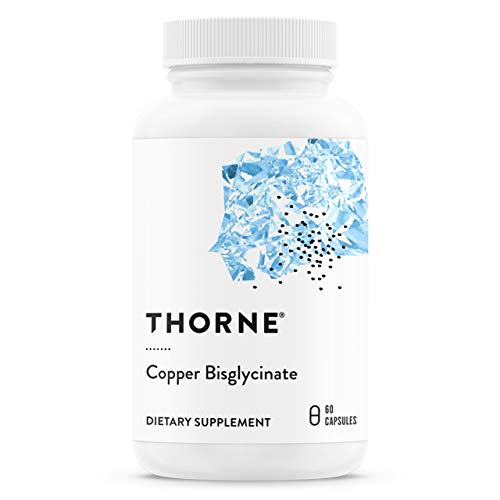 Thorne Copper Bisglycinate - Well-Absorbed Trace Mineral Supplement - 60 Capsules
Thorne Copper Bisglycinate - Well-Absorbed Trace Mineral Supplement - 60 Capsules
Emphysema and Copper Deficiency
In one animal study, researchers fed a group of rats a copper deficient diet for 6 weeks to determine whether or not copper deficiency led to emphysema. The rats also received chelation to remove excess copper from their bodies. The results of the study demonstrated:- Reduced vascular endothelial growth factor (VEGF) expression
- Reduced activity of HIF1-a (this is a transcription factor that is also involved in vascular regeneration, growth, and maintenance, like VEGF, and is required in order for the body to induce transcription of the VEGF gene, among others).
- Induced changes to the lungs that were emphysematous in nature
The conclusion of this particular study was that copper deficiency may indeed lead to destructive changes in the lungs that resemble emphysema.
Numerous other studies have also pointed to this conclusion in regard to copper deficiency-induced emphysema. Some other studies have speculated that an overexpression of TNF-a (Tumor Necrosis Factor-alpha) in the lungs that leads to chronic inflammation and a series of other events, ultimately ends in copper deficiency and the symptoms of emphysema. It’s also interesting to note that individuals who smoke cigarettes often have depleted copper levels, since smoking is a major risk factor for developing emphysema.
Respiratory Distress Syndrome and Copper Deficiency
Respiratory distress syndrome (RDS) in newborn infants has been shown to be linked to inadequate copper intake in mothers. One study on female rats demonstrated that 35% of the pups born to the mother rats who had been fed copper-free diets developed RDS. This indicates that copper is an essential nutrient for lung growth, development, and maintenance during gestation and immediately after birth, and also likely throughout life.Click here to subscribe to the Living Database!
Zinc Deficiency and Loss of Taste and Smell
In some diseases or infections, loss of taste and smell is a major symptom. Loss of taste is formally known as ageusia, while loss of smell is known formally as anosmia. Health problems that can result in loss of taste and/or loss of smell include:- COVID-19 infection and post-COVID syndrome
- Sinusitis (sinus infection)
- Common cold
- Influenza
- Strep throat
- Salivary gland infection
- Sjörgen’s Syndrome
- Pharyngitis (sore throat)
- Severe allergies
- Exposure to radiation therapy in the head or neck area
- Dental problems
- Other respiratory infections
Though not all cases of anosmia or ageusia may be caused by zinc deficiency (or there may be more factors that need to be addressed in addition to a zinc deficiency), many cases can successfully be treated with zinc supplementation. Particularly in the case of COVID-19 infections, post-COVID syndrome, and other respiratory infections of post-infection syndromes, zinc deficiency is a likely culprit.
Besides causing anosmia or ageusia, zinc deficiency or suboptimal levels of zinc can lead to other health problems too, including increased risk of infection, a higher risk of developing an autoimmune condition, and cancer. Autoimmune conditions and zinc deficiency are especially closely linked, and people who already have an autoimmune condition are more likely to develop a zinc deficiency and must pay close attention to their zinc levels. Zinc deficiency can also impair the absorption of many other nutrients, so ensuring adequate zinc levels can make a difference in not only preventing zinc deficiency but also in preventing deficiencies of other nutrients.
The relationship between autoimmunity and zinc becomes more compelling as one looks more closely at the multitude of scientific studies that link various autoimmune conditions from autoimmune hepatitis to psoriasis and lupus to colonizing pathogens, in particular those of the Streptococcal variety. And because there’s a link between zinc deficiency and streptococcal infection or shall we say, manifestations of streptococcal infection that are readily identifiable like strep throat, this relationship between autoimmunity and zinc deficiency warrants a closer look. The relationship between autoimmunity and zinc becomes more compelling as one looks more closely at the multitude of scientific studies that link various autoimmune conditions from autoimmune hepatitis to psoriasis and lupus to colonizing pathogens, in particular those of the Streptococcal variety. And because there’s a link between zinc deficiency and streptococcal infection or shall we say, manifestations of streptococcal infection that are readily identifiable like strep throat, this relationship between autoimmunity and zinc deficiency warrants a closer look. One autoimmune disease that we’ve researched in depth in terms of its relationship to streptococcal colonies is psoriasis, a disease that affect not just the skin, but also the digestive system, and the joints, but there are a number of them and anyone with autoimmune disease should consider the possibility that their disease is actually caused by a pathogen and that it is curable with nutritional therapy, enzyme therapies, and a reactive oxygen species medicine.
Zinc is present in particularly high quantities in the salivary glands and in taste buds. It plays an important role in taste and salivation, and therefore also a role in digestion (since the enzymes secreted in saliva are the first step in food digestion). An infection with COVID-19 has been speculated to cause zinc to be redistributed from blood (where it can circulate throughout the body to wherever it's needed) to the liver, where it accumulates and stops circulating. Thus, even if a person has been eating or taking enough zinc before a COVID-19 infection, the infection itself might draw zinc away from most areas of the body, including the taste buds, to the liver, resulting in a loss of taste (that can be restored with proper zinc supplementation). SIDE NOTE: If you suffer from lung disease and you also suffer from a loss of taste or smell, you might also look into the use of Schuessler salts, Methylene Blue, and Red Light Therapy.
Intracellular zinc levels, which may be depleted by a coronavirus infection, can be increased through oral administration of supplemental zinc. When intracellular zinc levels increase, zinc levels that may have been depleted in the taste buds, salivary glands, or olfactory receptors will also increase, which can restore a person’s ability to taste and smell. Zinc supplementation can also help with:
- Preventing primary infection with a respiratory virus
- Preventing secondary infection with a respiratory virus
- Reducing the risk of developing ARDS (acute respiratory distress syndrome)
- Reducing the chances of hospitalization and complications as a result of a respiratory infection like COVID-19
- Decreasing mortality rates in people who have a respiratory infection
- And more…
There are many different doses and types of zinc supplements that can be effective in treating loss of smell and/or loss of taste caused by COVID-19 infection. Oral zinc supplementation for the treatment of loss of taste or loss of smell can be administered at a dose of:
- One capsule of 220mg of zinc sulfate, containing at least 50 mg of elemental zinc, taken twice daily for 5 days.
- A different study was successful with administering patients a dose of 140mg of zinc gluconate per day for three months.
- Yet another study administered one 300mg capsule daily of zinc L-carnosine complex that contained at least 68 mg of elemental zinc for 12 weeks.
- Zinc acetate with at least 15mg of elemental zinc was administered once daily for 5 weeks in a different trial
- In another study, 300 mg of zinc sulfate was administered once daily for 6 months.
If you choose to take zinc supplements for a period of time longer than one month, plan to incorporate a supplement with 2 mg copper into your daily protocol. Long term high-dose zinc supplementation can deplete copper levels, so it’s important to supplement your copper intake to prevent symptoms of copper deficiency.
Potassium Deficiency and Respiratory Distress
Potassium deficiency, which may also be referred to more formally as hypokalemia, is generally caused by a poor diet, frequent diarrhea/vomiting, or by certain medications (specifically diuretic drugs, laxatives, and corticosteroids). High aldosterone levels as a result of an adrenal tumor or renal artery stenosis, renal tubular acidosis, and low magnesium levels may also eventually lead to low potassium levels. Potassium is an electrolyte that’s necessary in order for the body to send nerve signals, perform voluntary and involuntary muscle contractions, and to regulate fluids in tissues throughout the body (including in the lungs).Low potassium levels have been linked to or observed in patients with these lung diseases specifically:
- Respiratory failure
- Cystic fibrosis
- Chronic obstructive pulmonary disease (COPD)
- Interstitial lung disease
- Lung cancer
One study on a group of over 67,000 patients observed that patients with either hypokalemia or hyperkalemia (too little or too much potassium) both were at a higher risk of experiencing respiratory failure and requiring mechanical ventilation. Notably, a different source observed that many of the medications that COPD patients take ultimately lead to a decrease in potassium levels, which, if left unmanaged, could lead to worsening of symptoms (some specific medications that cause this include calcium channel blockers, phosphodiesterase inhibitors like theophylline, and beta-2 sympathomimetics like Salbutamol and Salmeterol). COPD patients have also previously been noted to have a slower-than-average rate of potassium exchange, even without being on any of these potassium-depleting medications.
To increase potassium levels, start with increasing your dietary sources of potassium. Some of the best sources of this nutrient include bananas, lentils, brown rice, dried apricots, yogurt, spinach, and broccoli. Potassium from food is very bioavailable with 85-90% of it being absorbed by the body, so it's unlikely that you’ll need to supplement if you increase your intake of these foods and ensure that you’re eating an overall healthy diet. Indeed, taking potassium supplements can be tricky, especially for patients with afib (atrial fibrillation) or other types of heart arrythmias because potassium levels regulate the time between heart beats. So if you have a heart rhythm disorder, note that potassium levels may play a role in controlling this problem, but be sure to talk to your doctor before taking potassium as a supplement, especially if you are taking prescription medications to control your heart rhythm.
If you do decide to supplement with potassium, use care and pay close attention to yourself. Start with a lower dose and don’t take more than you need. If you choose to try supplementing with potassium, take no more than 200mg per day and always take it with food and drink plenty of water.
Iodine Deficiency and Lung Disease
Iodine deficiency plays an important role in the development of many different lung diseases, including:- Cystic fibrosis
- Asthma
- Lung cancer and mesothelioma
- Respiratory infection
- And others…
Iodine is an essential nutrient that most readers will be lacking in their daily diets and supplementation protocol (unless you live outside of the US and eat fairly large amounts of seaweed like Japanese people do). Though some salt is iodized, salt is, unfortunately, a very poor carrier for iodine, and any of the tiny amounts of iodine present in salt evaporate shortly after you open the container. In addition to this, the water supply and even some foods are brominated in the US. Bromine, a halogen in the same column on the periodic table as iodine, is able to “take over” iodine receptors in the body and thereby negatively affect hormone health, including having an effect on metabolism, heart and gastrointestinal health, reproductive/sexual health, immunity, brain function, and more.
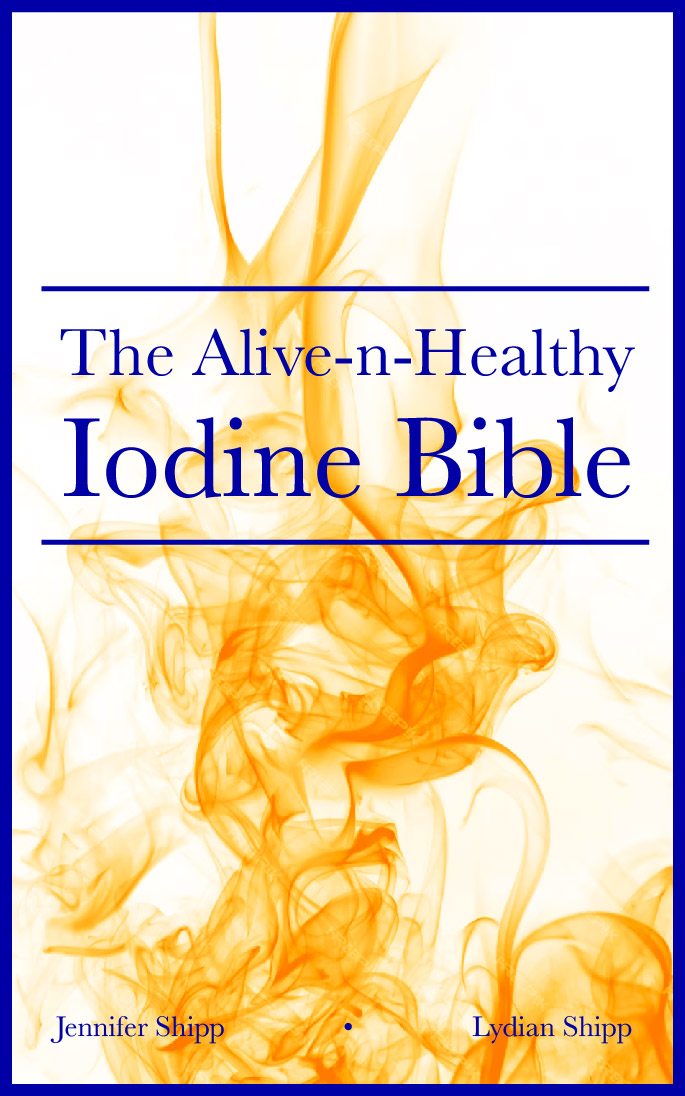
The AlivenHealthy Iodine Bible - Everything you need to know to get started taking iodine and more!
Individuals in countries like the US who are exposed to bromine on a regular basis MUST take supplemental iodine every day in order to prevent the negative effects caused by bromine. When iodine deficiency is the problem, starting supplementation often reduces lung disease symptoms surprisingly quickly after the initial bromine detox period. It’s important to start slow with iodine supplementation and to be aware of the detoxification symptoms you may experience.
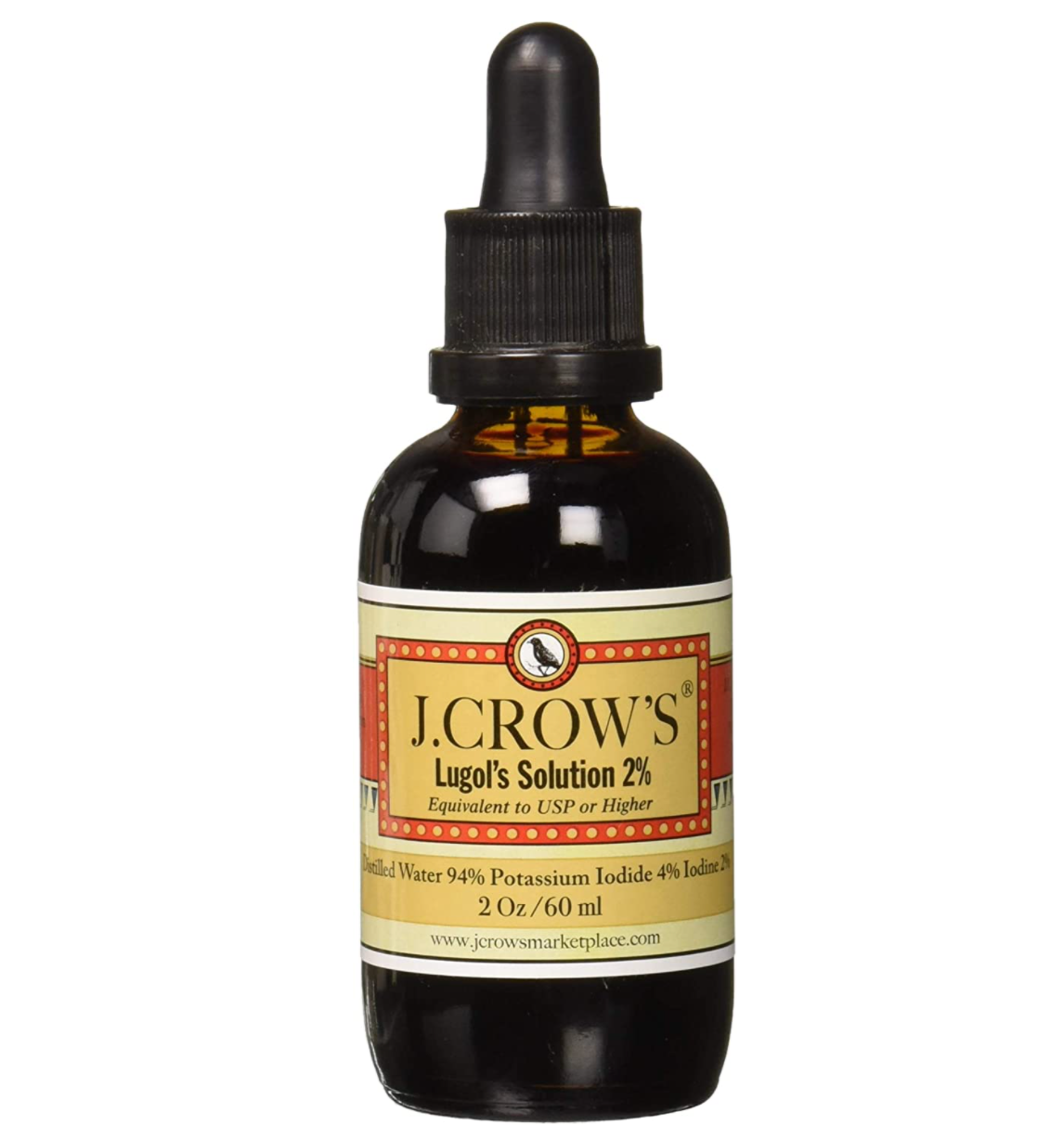 Note that Lugol’s Iodine is one of the staple ingredients in any anti-cancer protocol. It plays a vital role in balancing reproductive hormone levels as well as thyroid hormone levels and as such, it plays a particularly important role in all reproductive organ cancers. Exercise caution if you have either hypothyroidism or hyperthyroidism and be sure to take supporting nutrients with your iodine supplement including:
Note that Lugol’s Iodine is one of the staple ingredients in any anti-cancer protocol. It plays a vital role in balancing reproductive hormone levels as well as thyroid hormone levels and as such, it plays a particularly important role in all reproductive organ cancers. Exercise caution if you have either hypothyroidism or hyperthyroidism and be sure to take supporting nutrients with your iodine supplement including:
- Selenium - 200 mg
- Zinc - (see above for dosing recommendations depending on the type of zinc that you choose to supplement with).
- Vitamin B2 - 500 mg
- Vitamin B3 - 500 mg
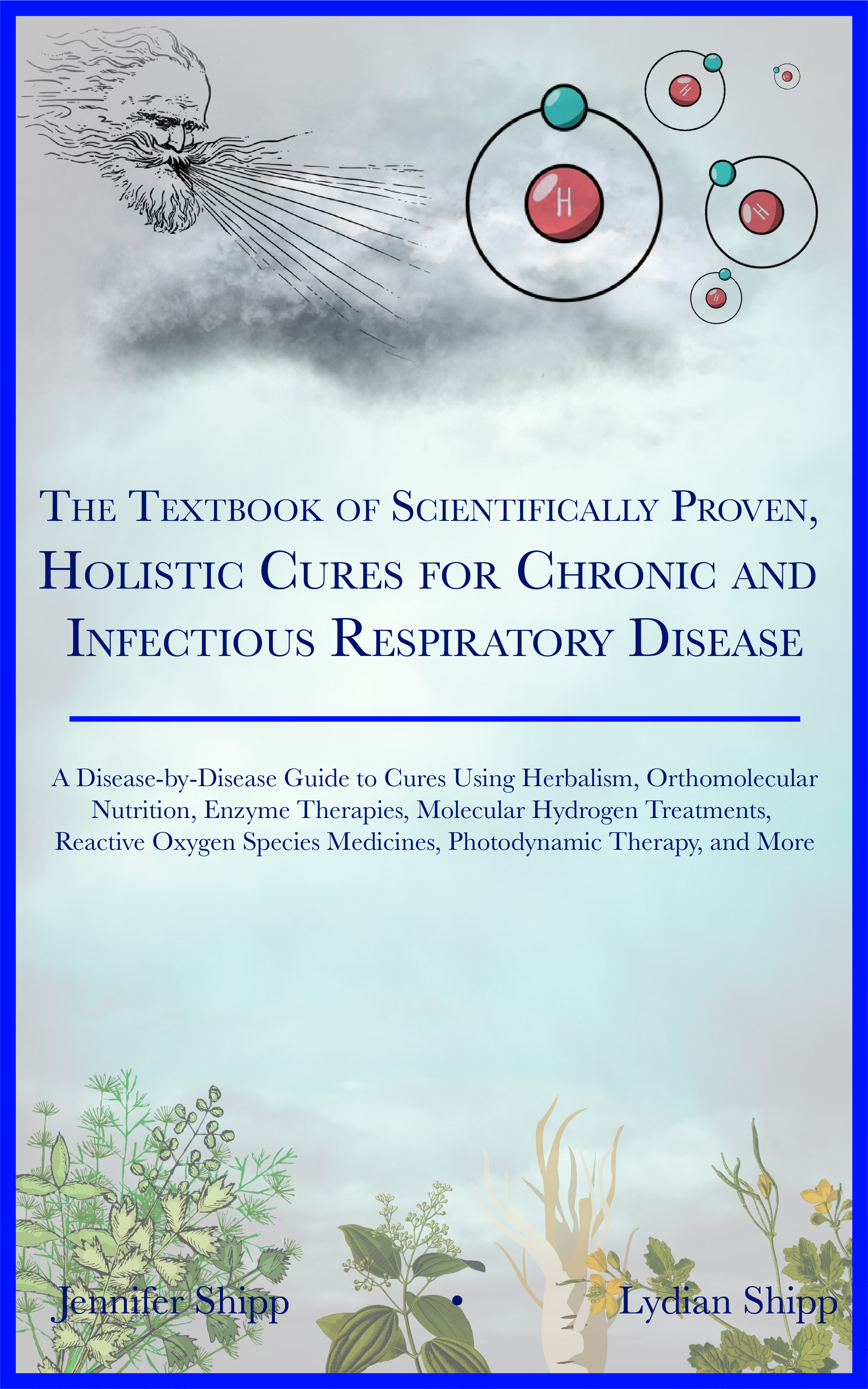
Resources:

 Swanson Beta-Carotene Vitamin A 25000 IU Skin Eye Immune System Health Antioxidant Support 7500 mcg 300 Softgels Count
Swanson Beta-Carotene Vitamin A 25000 IU Skin Eye Immune System Health Antioxidant Support 7500 mcg 300 Softgels Count
 Bronson Vitamin K2 (MK7) with D3 Supplement Non-GMO Formula 5000 IU Vitamin D3 & 90 mcg Vitamin K2 MK-7 Easy to Swallow Vitamin D & K Complex, 120 Capsules
Bronson Vitamin K2 (MK7) with D3 Supplement Non-GMO Formula 5000 IU Vitamin D3 & 90 mcg Vitamin K2 MK-7 Easy to Swallow Vitamin D & K Complex, 120 Capsules
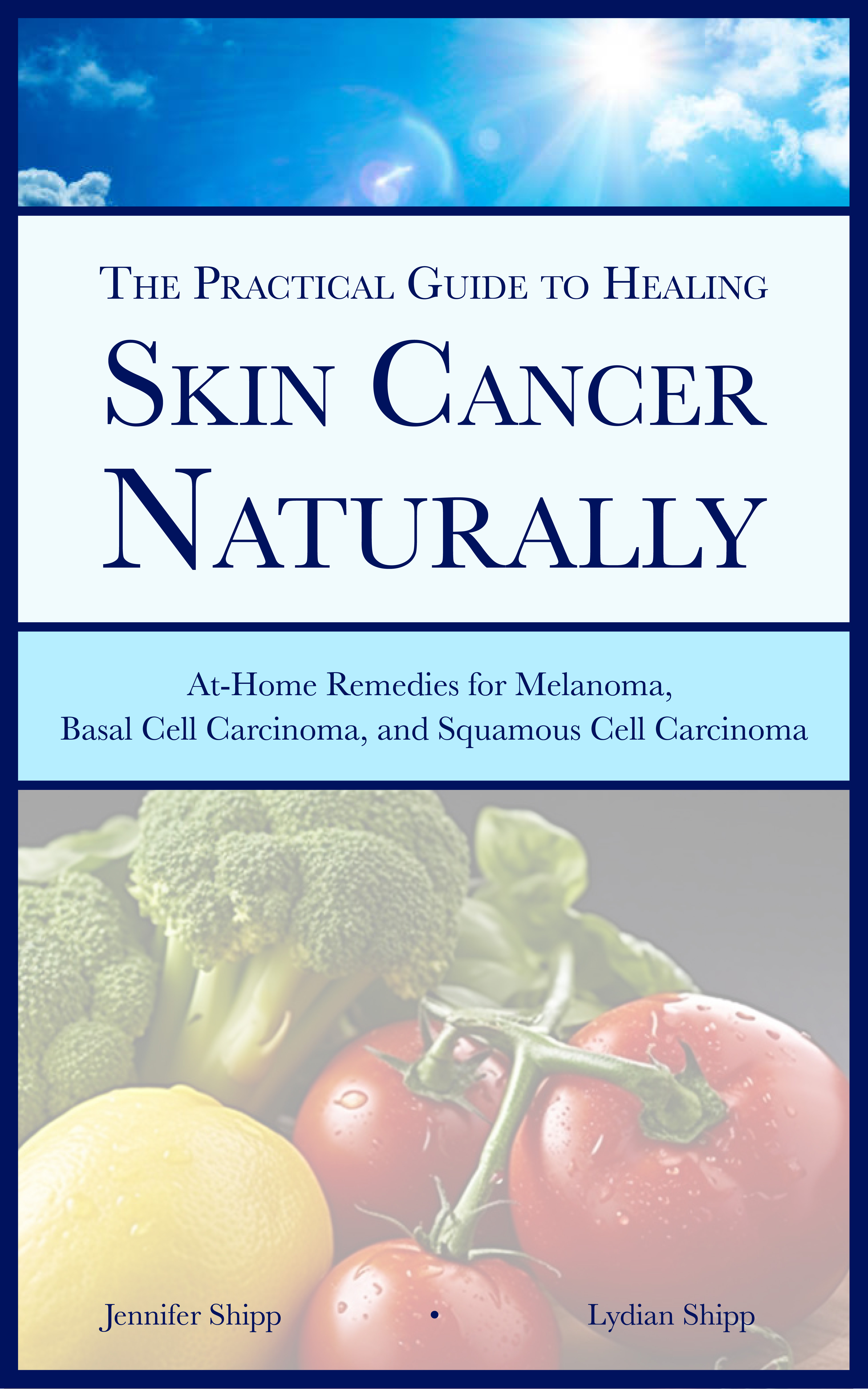 The Practical Guide to Healing Skin Cancer Naturally: At-Home Remedies for Melanoma, Basal Cell Carcinoma, and Squamous Cell Carcinoma - BUY HERE!
The Practical Guide to Healing Skin Cancer Naturally: At-Home Remedies for Melanoma, Basal Cell Carcinoma, and Squamous Cell Carcinoma - BUY HERE! SOLARAY Vitamin E, d-Alpha Tocopherol 1000IU for Healthy Cardiac Function, Antioxidant Activity & Skin Health Support Lab Verified 60 Softgels
SOLARAY Vitamin E, d-Alpha Tocopherol 1000IU for Healthy Cardiac Function, Antioxidant Activity & Skin Health Support Lab Verified 60 Softgels
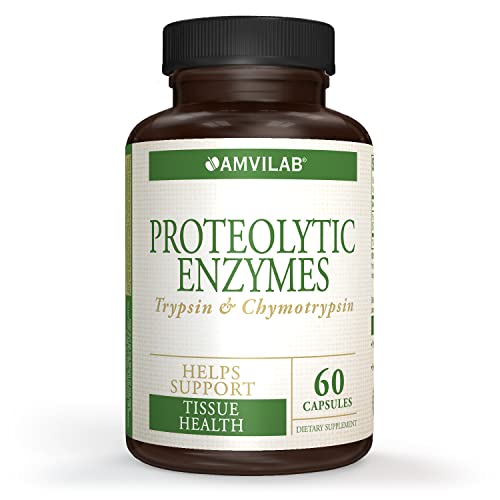 AMVILAB Proteolytic Enzymes: Trypsin & Chymotrypsin, Proteolytic Enzymes Supplement, Supports Tissue Health, Reduces Edema & Inflammation Caused by Tissue Injury, Fast Recovery - 60 Capsules
AMVILAB Proteolytic Enzymes: Trypsin & Chymotrypsin, Proteolytic Enzymes Supplement, Supports Tissue Health, Reduces Edema & Inflammation Caused by Tissue Injury, Fast Recovery - 60 Capsules
 Vital Nutrients Pancreatic Enzymes 1000mg (Full Strength) | Pancreatin Digestion Supplement with Protease, Amylase & Lipase | Digestive Enzymes | Gluten, Dairy, and Soy Free | 90 Capsules
Vital Nutrients Pancreatic Enzymes 1000mg (Full Strength) | Pancreatin Digestion Supplement with Protease, Amylase & Lipase | Digestive Enzymes | Gluten, Dairy, and Soy Free | 90 Capsules
 Zazzee Delayed Release Serrapeptase, 120,000 SPU per Capsule, 120 Vegan Capsules, 4 Month Supply, Extra Strength, Potent and Concentrated Systemic Enzymes, 100% Vegetarian, All-Natural and Non-GMO
Zazzee Delayed Release Serrapeptase, 120,000 SPU per Capsule, 120 Vegan Capsules, 4 Month Supply, Extra Strength, Potent and Concentrated Systemic Enzymes, 100% Vegetarian, All-Natural and Non-GMO
 Zazzee High Strength Grape Seed 50:1 Extract, 20,000 mg Strength, 180 Vegan Capsules, 95% Polyphenols, 6 Month Supply, Concentrated, Standardized 50X Extract, 400 mg per Capsule, All-Natural, Non-GMO
Zazzee High Strength Grape Seed 50:1 Extract, 20,000 mg Strength, 180 Vegan Capsules, 95% Polyphenols, 6 Month Supply, Concentrated, Standardized 50X Extract, 400 mg per Capsule, All-Natural, Non-GMO
 Bitter Apricot Kernels Organic Raw (1LB) -100% USDA Organic Certified – Product of Turkey (Free Electronic Book)
Bitter Apricot Kernels Organic Raw (1LB) -100% USDA Organic Certified – Product of Turkey (Free Electronic Book)
 Bronson Selenium 200 mcg – Yeast Free Chelated Amino Acid Complex - Essential Trace Mineral with Superior Absorption, 250 Vegetarian Capsules
Bronson Selenium 200 mcg – Yeast Free Chelated Amino Acid Complex - Essential Trace Mineral with Superior Absorption, 250 Vegetarian Capsules

 MaryRuth Organics Zinc Supplements for Immune Support, Ionic Zinc for Kids & Adults, Liquid Zinc Supplement, 40 Day Supply, Zinc Sulfate, Skin Care Supplement, Vegan, Gluten Free, Glycerin Based, 4 oz
MaryRuth Organics Zinc Supplements for Immune Support, Ionic Zinc for Kids & Adults, Liquid Zinc Supplement, 40 Day Supply, Zinc Sulfate, Skin Care Supplement, Vegan, Gluten Free, Glycerin Based, 4 oz






